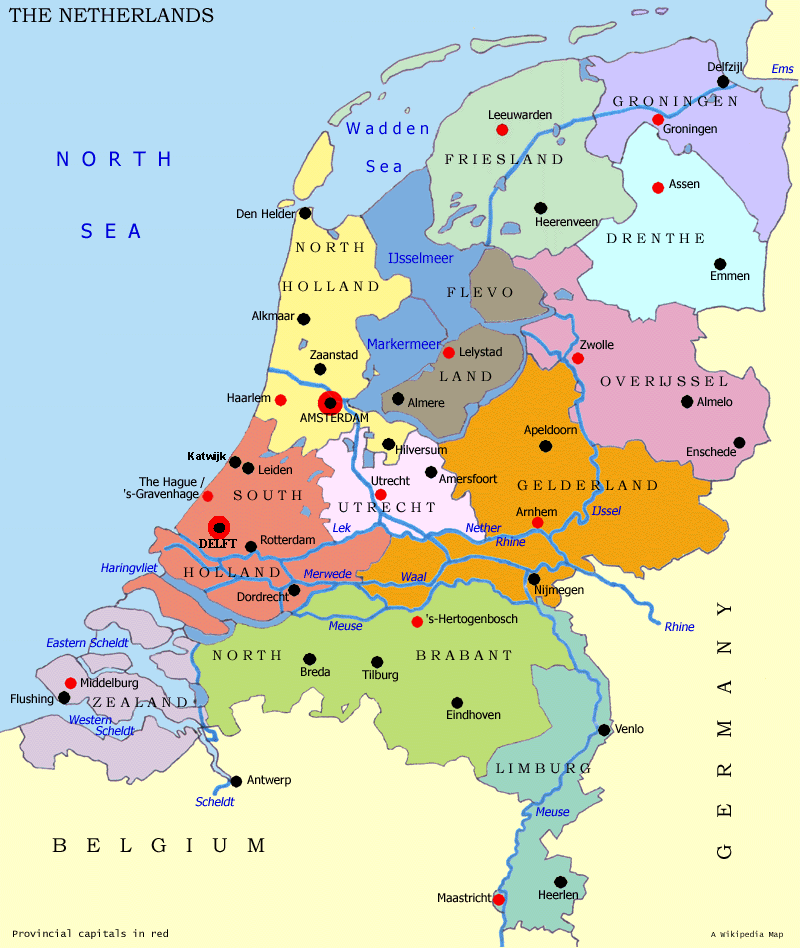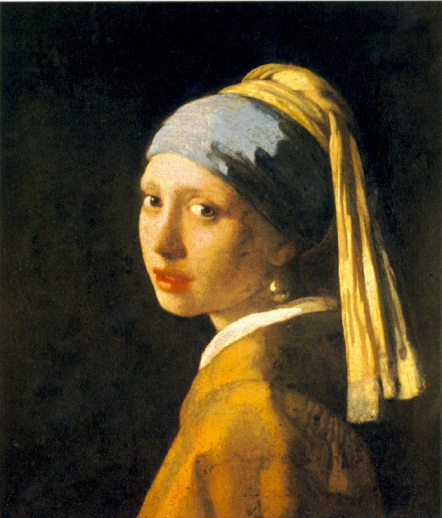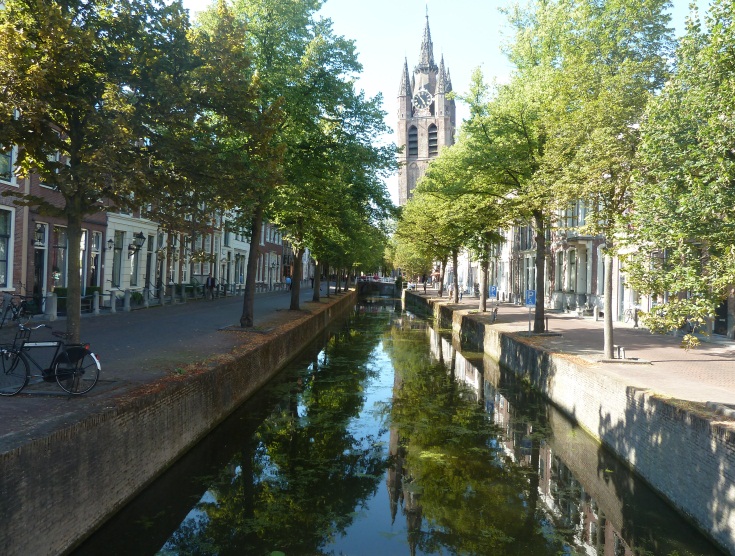IEEE/ACM DS-RT 2013
The Netherlands
The Netherlands, Nederland in Dutch, is a constituent country of the Kingdom of the Netherlands, consisting of twelve provinces in North-West Europe and three islands in the Caribbean. With over 16.5 million (http://www.cbs.nl/en-GB/menu/themas/bevolking/cijfers/extra/bevolkingsteller.htm) people on a surface of 41,528 km2, the Netherlands is one of the most densely populated countries in the world (1st in European-Union, visit here if you seek further info). The Netherlands has borders to the North Sea (http://en.wikipedia.org/wiki/North_Sea) to the north and west, Belgium to the south (http://www.belgium.be/en/) and Germany (https://www.deutschland.de/en) to the east (see the map below).
The Netherlands is a geographically low-lying country, with about 20% of its area and 21% of its population located below sea level (http://www.cbs.nl/NR/rdonlyres/D2CE63F9-D210-4006-B68B-98BE079EA9B6/0/2008c167pub.pdf) and 50% of its land lying less than one metre above sea level (http://www.eupedia.com/netherlands/trivia.shtml). This distinct feature contributes to the country's name: in Dutch (Nederland), English, and in many other European languages, its name literally means "(The) Low Countries" or "Low Country" (http://en.wikipedia.org/wiki/Netherlands).
Internationally, the (Kingdom of the) Netherlands is often referred as Holland. In fact, Holland is a region and former province located on the western coast of the Netherlands. On the other hand, Holland is also the brand that is used by the government to promote business and leisure trips to the Netherlands.
Language
The official language of The Netherlands is Dutch (http://en.wikipedia.org/wiki/Dutch_language), which is spoken by the vast majority of the inhabitants. However, there is a tradition of learning foreign languages in the Netherlands: about 70% of the total population have good knowledge of conversational English, 55-59% of German, and 19% of French. This makes it very easy for tourists to find some locals who can understand their questions and give a fairly good answer.
Passports and Visas
The Netherlands is part of the Schengen Area: 26 European countries of the European Union with no border controls between them. These countries issue a common visa, the Schengen visa. The 26 Schengen countries are: Austria, Belgium, the Czech Republic, Denmark, Estonia, Finland, France, Germany, Greece, Hungary, Iceland, Italy, Latvia, Liechtenstein, Lithuania, Luxembourg, Malta, the Netherlands, Norway, Poland, Portugal, Slovakia, Slovenia, Spain, Sweden and Switzerland.
A Schengen visa’s validity may be limited to only one country (for instance the Netherlands) or a specified number of countries (for instance Belgium, Luxembourg and the Netherlands). In such cases, the visa holder may visit only the countries for which the Schengen visa is valid.
Whether you need a Schengen visa depends on your nationality. If you are a national of one of these countries (http://www.government.nl/issues/visa-for-the-netherlands-and-the-caribbean-parts-of-the-kingdom/documents-and-publications/leaflets/2012/10/04/countries-whose-citizens-need-a-schengen-visa-for-the-netherlands.html), you need a Schengen visa for a stay of up to 90 days. How to apply for a Schengen visa can be found here (http://www.government.nl/issues/visa-for-the-netherlands-and-the-caribbean-parts-of-the-kingdom/visa-for-the-netherlands-the-schengen-visa/how-to-apply-for-a-schengen-visa).
Please note that in exceptional cases, an investigation will take longer than two months. You should therefore apply for a visa as soon as possible to avoid the disappointment of having to postpone your visit.
If you require a letter of invitation for your visa application please contact the workshop Program Chairs.
You do NOT need a Schengen visa for a stay of up to 90 days if you are a national of one of these countries (http://www.government.nl/issues/visa-for-the-netherlands-and-the-caribbean-parts-of-the-kingdom/documents-and-publications/leaflets/2012/10/04/countries-whose-nationals-do-not-need-a-schengen-visa-for-the-netherlands.html). For example, citizens from the United Kingdom, USA, Australia, Canada, Japan, Taiwan, Argentina, Brazil, Chile, or Israel do not need a visa.
If you do not need a visa, you may enter the Netherlands as long as you meet the following conditions:
- You have a valid passport;
- You have enough money; (€34 per day);
- You have a bona fide reason for visiting the Netherlands;
- You are not considered a threat to public order, national security or international relations.
Currency & Banking
The Netherlands is one of the seventeen euro (€) countries. There are eight coins (€ 0.01, € 0.02, € 0.05, € 0.10, € 0.20, € 0.50, € 1 and € 2) and seven notes (€ 5, € 10, € 20, € 50, € 100, € 200 and € 500) available. However, € 500 note is accepted at very few shops, restaurants, etc. and € 200 and € 100 notes are not accepted by small shops and supermarkets either. Credit cards, almost all major cards, are also accepted at most restaurants and shops. However, it is advisable to ask in advance. ATMs can be found even in the smallest villages across the country and you can use most credit cards to withdraw cash money from those ATMs. They often operates 24/7.
Time difference
The Netherlands is in the Central European Time Zone. Central European Standard Time (CET) is 1 hour ahead of Greenwich Mean Time (GMT+1).
Climate
The weather in Delft, The Netherlands in October/November can be quite rainy, so please do not forget to bring a raincoat. The average temperature is around 10 - 15 degrees Celsius. Click here for actual weather conditions
Electricity
Standard power supply in The Netherlands is 220V/50Hz (two-pin power outlet, type C or F).
Delft
Delft (http://www.delft.nl/delften/Tourists), nicknamed de Prinsenstad (the City of Princes), is the city of Delft Blue (http://www.delft.nl/delften/Tourists/Discover_Delft/To_see/Delft_Blue), the House of Orange (http://www.delft.nl/delften/Tourists/Discover_Delft/To_see/House_of_Orange) and Johannes Vermeer (http://en.wikipedia.org/wiki/Johannes_Vermeer). With the ancient canals lined with merchants' houses, the old churches, and the splendid town hall, Delft is a well-preserved historical city centre located in the province of South Holland between the larger cities of The Hague and Rotterdam. At the same time, though, it is a very modern and vibrant city. Ten percent of its 100,000 inhabitants study and work at Delft University of Technology (http://www.tudelft.nl/en), the largest, and most comprehensive university of technology in the Netherlands.
"It is like Amsterdam in miniature but much easier to walk around".

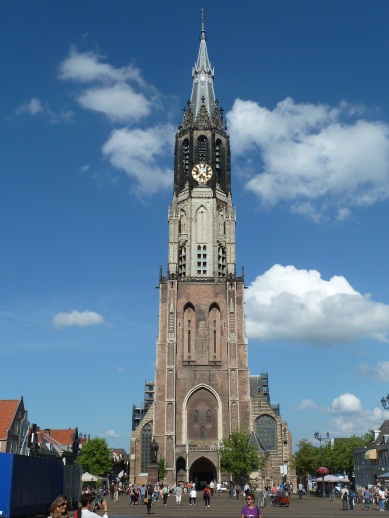
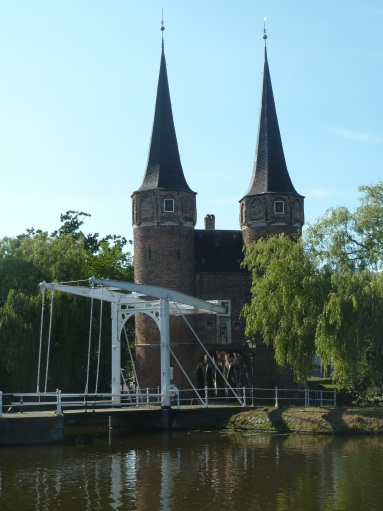
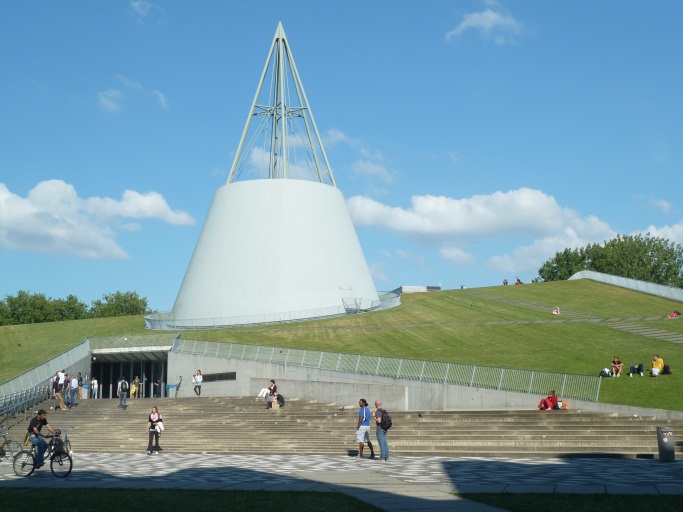
More information about visiting Delft, please go here (http://www.holland.com/uk/tourism/cities-in-holland/more-cities/visit-delft.htm) and here http://www.delft.nl/delften/Tourists/Discover_Delft).
